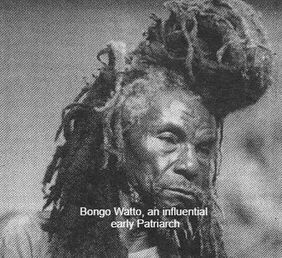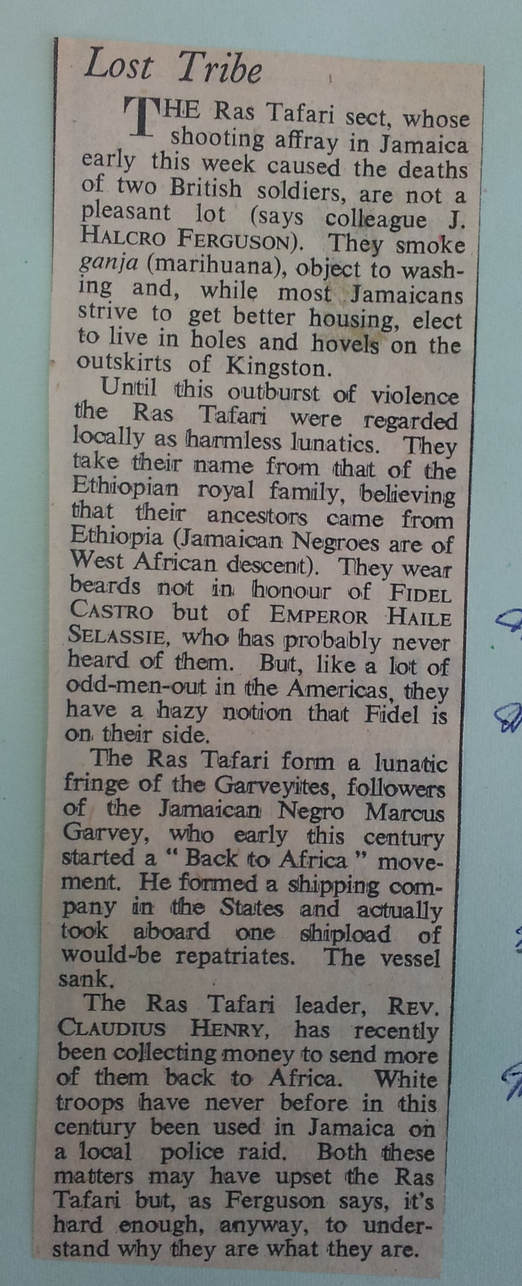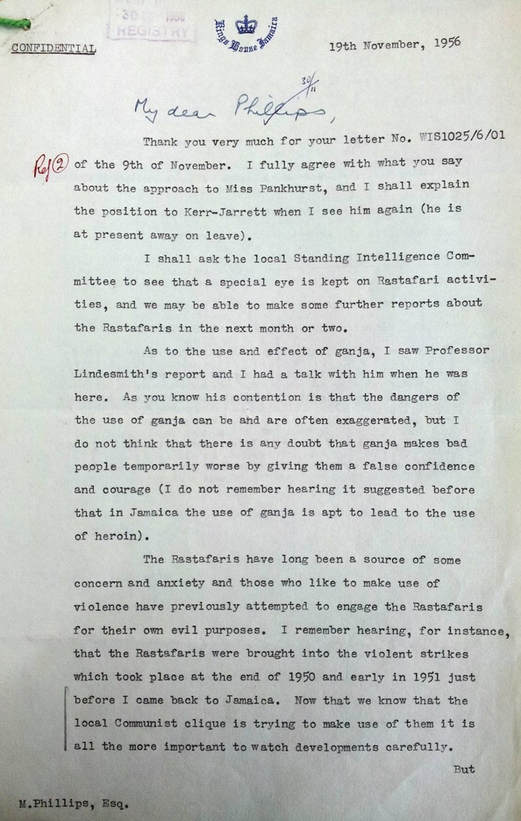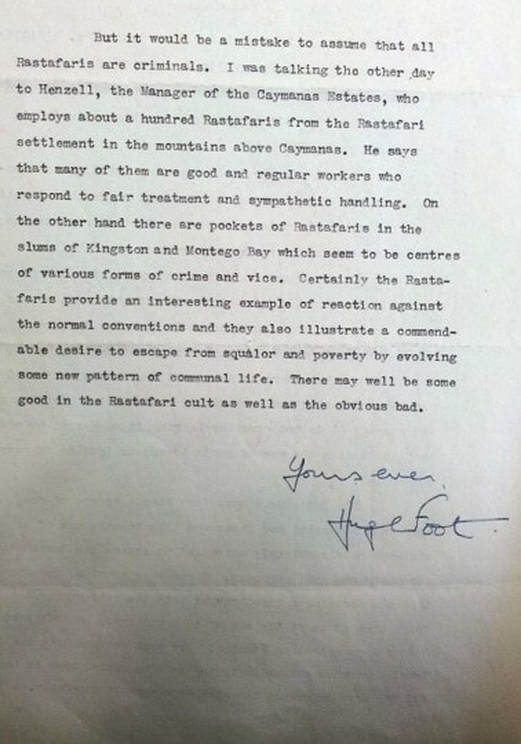Out of the Colonial Caribbean
Perceptions of the Movement

A range of perceptions met the Rastafari movement in colonial Jamaica. Many Rastafari were maligned and abused by some of their own families and communities. Colonial society at large considered them to be mentally unstable.
Those involved in colonial governance made interesting assessments of the character of Rastafari individuals, which in part confirmed but in part refuted the more sensationalist reports of this growing "cult" of Blackheart men and women.
Those involved in colonial governance made interesting assessments of the character of Rastafari individuals, which in part confirmed but in part refuted the more sensationalist reports of this growing "cult" of Blackheart men and women.
The report below from Britain's Observer newspaper was in response to the killing, in 1960, of four British soldiers of the Royal Hampshire Regiment by Reynold Henry, who acted with a few army colleagues from the US. Reynold was the son of Rev. Claudius Henry, a "back to Africa" enthusiast, associated with the Rastafari movement. Reynold, however, acted unilaterally.
Compare and contrast this report to one given a few years prior by Hugh Foot, at the time the Governor in Chief of Jamaica. Foot was in part responding to reports that Sylvia Pankhurst was radicalizing the Rastafari "sect":


